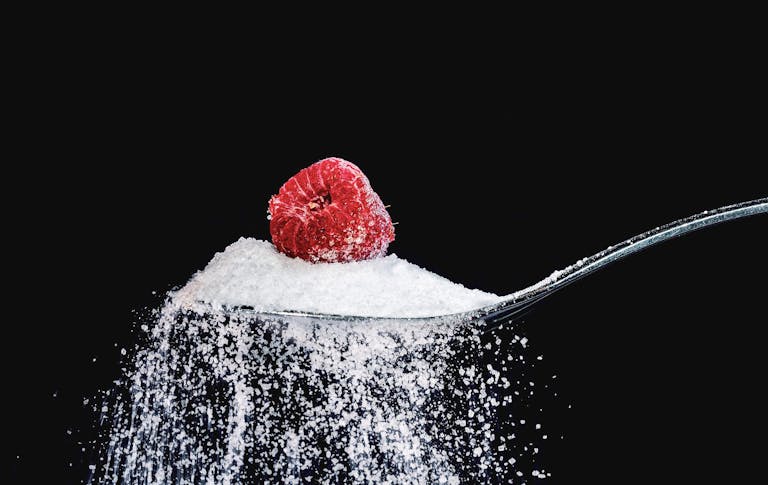FREE SHIPPING OVER $50
Turns Out My ‘Dementia’ Was Just a Vitamin Deficiency—And Fixing It Was So Simple
Brain fog. Forgetfulness. That creeping worry that something more serious might be happening. If you’ve ever felt like your brain is running on fumes, you’re not alone. For many people, symptoms like these spark fear of dementia, but what if the real culprit was something as simple as a vitamin deficiency? That was my story—and trust me, the solution was easier than I ever imagined.
Let’s unpack what happened and how understanding the link between brain health and nutrition can save you from unnecessary worry.
The Early Warning Signs of ‘Dementia’

A few months ago, I found myself struggling with tasks that were once second nature. I’d forget names, misplace items, and constantly feel mentally “foggy.” Naturally, my first thought wasn’t, I must be low on vitamins! It was more along the lines of, Is this early dementia?
Turns out, I wasn’t alone in jumping to the worst-case scenario. Many people experience cognitive changes due to lifestyle factors, but they rarely connect the dots to their diet.
What’s the Real Link Between Nutrition and Brain Health?
Our brains rely on a delicate balance of nutrients to function. Vitamins play a starring role in processes like memory retention, focus, and mood regulation. If any of these are lacking, your brain might start sending you distress signals—like mine did.
The key players?
- Vitamin B12
- Vitamin D
- Omega-3 Fatty Acids
- Iron
- Magnesium
These nutrients are essential for optimal brain performance. Deficiencies can mimic neurological disorders, leading to symptoms like forgetfulness and fatigue.
Vitamin B12: The Unsung Hero
When my doctor ran a simple blood test, the results pointed to a significant vitamin B12 deficiency. B12 is crucial for producing red blood cells and maintaining healthy nerve cells. Without it, your brain can’t work at full capacity, leading to symptoms like:
- Memory lapses
- Difficulty concentrating
- Mood swings
After starting a B12 supplement, my brain fog lifted within weeks. Foods rich in B12—like eggs, fish, and dairy—are also excellent sources if supplements aren’t your thing.
Vitamin D and Its Role in Cognitive Clarity
Known as the “sunshine vitamin,” vitamin D is another common deficiency with big brain impacts. Research has linked low vitamin D levels to cognitive decline and mood disorders.
If you’re not soaking up enough sun, try adding these to your diet:
- Fatty fish (like salmon)
- Fortified cereals
- Egg yolks
Or consider a high-quality vitamin D supplement to fill the gap.
Iron: The Oxygen Highway
Low iron levels can leave you feeling sluggish and scatterbrained. Why? Because iron helps transport oxygen to the brain. Without enough oxygen, your brain struggles to perform even basic tasks.
Look for these iron-rich foods:
- Spinach
- Lean red meat
- Lentils
Omega-3 Fatty Acids for Brain Boosting
Omega-3s are the building blocks of brain cells. Without them, memory and focus take a hit. These fatty acids are found in:
- Salmon
- Walnuts
- Flaxseeds
How Simple Changes Fixed Everything
Once I addressed my deficiencies, everything changed. My brain fog disappeared, my focus sharpened, and I felt like myself again. The best part? The fixes were surprisingly simple. Here’s what worked:
- Daily Supplements
I incorporated a high-quality multivitamin with B12 and vitamin D. - Diet Tweaks
I made small changes, like adding spinach to smoothies and swapping snacks for nuts and seeds. - Routine Blood Tests
To avoid slipping back into old patterns, I scheduled regular checkups to monitor my levels.
Could You Be Vitamin-Deficient Too?
If you’re feeling off but haven’t connected it to your diet, consider these signs of common deficiencies:
- Persistent fatigue
- Memory issues
- Difficulty concentrating
- Mood changes
A quick blood test can help you uncover the root cause and create a plan to get back on track.
Preventing Brain Fog Before It Starts
Prevention is always better than cure. Here are some tips to keep your brain sharp and your vitamins balanced:
- Eat a Rainbow: Incorporate colorful fruits and veggies for a variety of nutrients.
- Stay Hydrated: Dehydration can worsen brain fog.
- Get Moving: Exercise improves circulation, which helps deliver nutrients to your brain.
- Don’t Skip the Sun: A little daily sunshine goes a long way for vitamin D.
Final Thoughts
What felt like an early dementia diagnosis turned out to be a wake-up call for my diet. My experience taught me that nutrition is a powerful tool for brain health. If you’re dealing with brain fog or memory problems, don’t panic—start by looking at your plate.
Related Articles
- Magnesium Spray: The Secret Weapon for Better Sleep and Relaxation
- Primal Queen Reviews: The Truth About This Popular Supplement
- SEEQ Protein Review: Safety, Ingredients, and Benefits
- You’re Probably Skipping This Protein—And That’s a Huge Mistake
- Revealed: The Supplement Helping People Over 40 Build Muscle Faster







